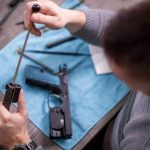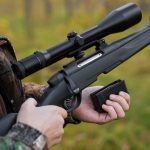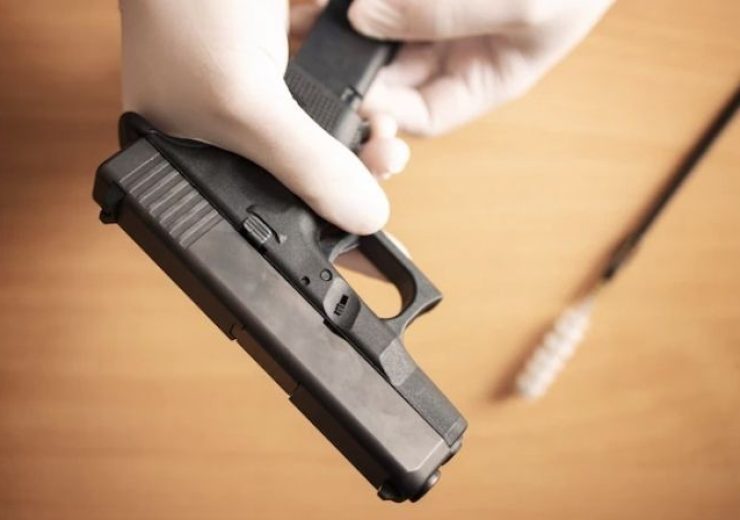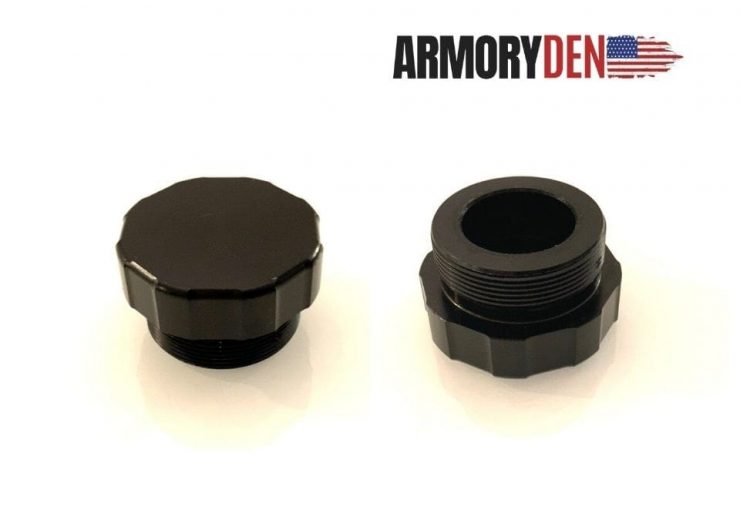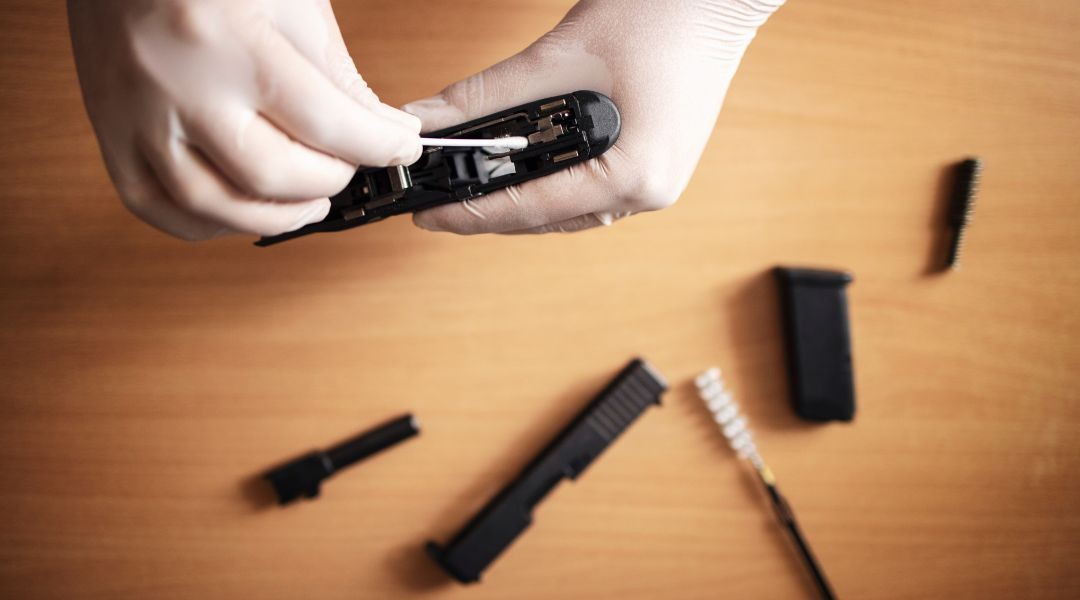
How Often Should You Clean Your Handgun?
Your handgun is your trusted companion. Take care of it well to keep its performance at its best. Regular cleaning prevents rust buildup and other damage. But how often should you do this maintenance task?
Create a schedule where you give it attention every two weeks or at least monthly to keep its readiness intact. Notably, the outer part of the slide needs to be oiled to avoid any rust due to contact with the skin.
After around 250-300 rounds have been shot from your firearm, consider conducting a general clean-up session to rejuvenate its performance and lifespan. Pump up this maintenance notch by doing an extensive cleanse once approximately 3,000 rounds have been fired to guarantee optimal function and prepare it perfectly for future competitions. Environmental factors heavily affect how often firearms should be cleaned, as exposure can quickly lead to deterioration, such as rusting caused by elements like heat and damp conditions.
Hunting firearms particularly need considerable care because they get stowed away between uses, which might expose them disproportionately more than other firearms to environmental pollutants, causing build-ups over time and leading eventually to faster wear-out rates.
Regular maintenance, including thorough cleanings, proves beneficial in preserving its top-notch condition.
If left neglected, debris or excessive lubricants can accumulate in movable parts, causing trouble with functionality. A routine deep clean eliminates these harmful components, assuring that your pistol performs reliably when needed most. Accuracy can dwindle over time due to grit build-up within the barrel, disrupting performance. Regular upkeep ensures these issues vanish, enhancing precision. Moreover, longevity should be considered as well.
Diligent care drastically extends a firearm’s shelf-life, preventing unwanted wear-and-tear from gunk accumulation and moisture exposure, potentially leading to rusting or permanent corrosion damage. Ensuring dry storage conditions and regular revamps keeps any potential harm at bay, thus securing prolonged use! In conclusion, prioritizing consistent cleanliness leads to stress-free usage and helps maintain accuracy, ensuring optimal efficiency every time you pull out that trusted firearm!
Create a schedule where you give it attention every two weeks or at least monthly to keep its readiness intact. Notably, the outer part of the slide needs to be oiled to avoid any rust due to contact with the skin.
After around 250-300 rounds have been shot from your firearm, consider conducting a general clean-up session to rejuvenate its performance and lifespan. Pump up this maintenance notch by doing an extensive cleanse once approximately 3,000 rounds have been fired to guarantee optimal function and prepare it perfectly for future competitions. Environmental factors heavily affect how often firearms should be cleaned, as exposure can quickly lead to deterioration, such as rusting caused by elements like heat and damp conditions.
Hunting firearms particularly need considerable care because they get stowed away between uses, which might expose them disproportionately more than other firearms to environmental pollutants, causing build-ups over time and leading eventually to faster wear-out rates.
As you use your firearm, normal wear is expected. Much like a well-loved pair of shoes develop natural creases over time, parts of your pistol will inevitably see some degree of wear from use. This process doesn’t usually disrupt the firearm’s operation until significant usage has accrued.
Conversely, eccentric wear presents more serious implications for function. Imagine sand in those beloved shoes; it makes walking painful and can damage the footwear if not addressed promptly! Similarly, with firearms, foreign particles such as dirt or unburned powder result in erratic wearing away, which affects smooth functioning.
You might notice decreased accuracy when shooting; this could be due to powder residue clogging up vital mechanics within your handgun’s structure, negatively impacting its precision capabilities. The springs also need keen attention since they naturally depreciate after thousands of rounds are fired off, causing slower response times during recoil action. This is why regular maintenance checkups on these key elements should never be overlooked, regardless of how tough or reliable your weapon claims to perform!
Keeping your firearm clean plays a crucial role in its overall performance. Firing leaves particles behind that build up over time. These residues can eventually cause the firearm to malfunction if not removed regularly.
More regular cleaning might be necessary if you’re frequently at shooting ranges or exposed to harsh environments. However, even if left idle and safe from harm’s way for long periods, it doesn’t mean neglecting cleaning entirely is okay. The type of ammunition shot through your handgun also impacts how frequently you should clean it due to varying residue amounts they produce when fired.
Remember, too much cleanliness isn’t always better, either. Excessive swabbing could lead to wear on certain parts, negatively impacting accuracy. An aspect some overlook often but worthy of note nonetheless! In a nutshell, find the balance best suiting your habits with firing and exposure conditions, which will help extend life longevity and maintain efficient functionality for this essential tool.
Every firearm requires occasional disassembly, commonly known as field stripping. This procedure allows for a more thorough clean-up beyond what surface cleaning can offer. Field-stripping your firearm should be part of your regular maintenance routine to ensure prolonged efficacy and durability.
Remember that each type of weapon has its unique method for field stripping, so always refer back to the manufacturer’s guide or seek assistance from trained professionals if you’re unsure about it. You need several tools during this process: screwdrivers, pins, punches, and brushes with nylon bristles are among them. Ensure they match your handgun size before starting any dismantling operation.
A wrongly sized tool could cause preventable damage to your equipment. Additionally, utilizing high-quality solvent traps and lubricants during these tasks is essential. Never compromise on quality over price here!
The right solvent traps will provide additional benefits of firearm cleaning to help catch and trap grime buildup during cleaning. Cleaning your firearm with these effective solutions will motivate you clean more often to reduce future wear caused by continuous shooting activities. These steps significantly maintain peak performance levels while increasing longevity. Remember to follow safety protocols and handle your firearm responsibly throughout maintenance.
Safe storage plays a crucial role in your firearm’s longevity. Always store firearms unloaded, preferably in an area with low humidity, to prevent rusting or corrosion. Furthermore, keep it away from children’s reach. This is not to be confused with dry storage, which our solvent traps can be used for as well. Here, we refer to the actual safe storage of your firearms.
If you have others living with you, consider investing in a reliable and secure lockbox or safe that will be accessed by authorized persons only; this can reduce the risk of accidents significantly. Regarding safety practices during handling and use, always treat every weapon as if loaded. Be cautious not just for yourself but those around you, too, when carrying or shooting at a range; no game is worth human life!
Avoid pointing your firearm toward anything which may cause unintended injury or damage. Remember, bullets often penetrate walls unintentionally! With all these vital points considered: proper cleaning schedules maintained with cautionary usage patterns adhered to, your weapons are bound to stay functioning smoothly for years on end!


